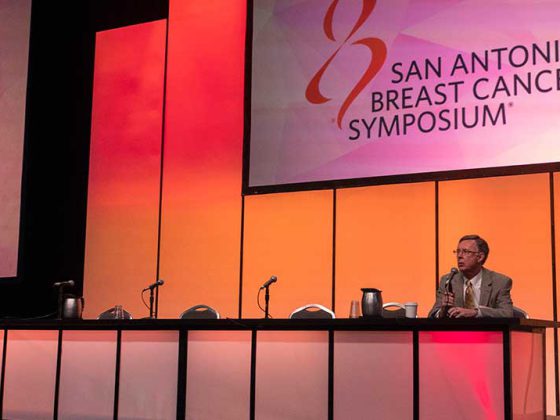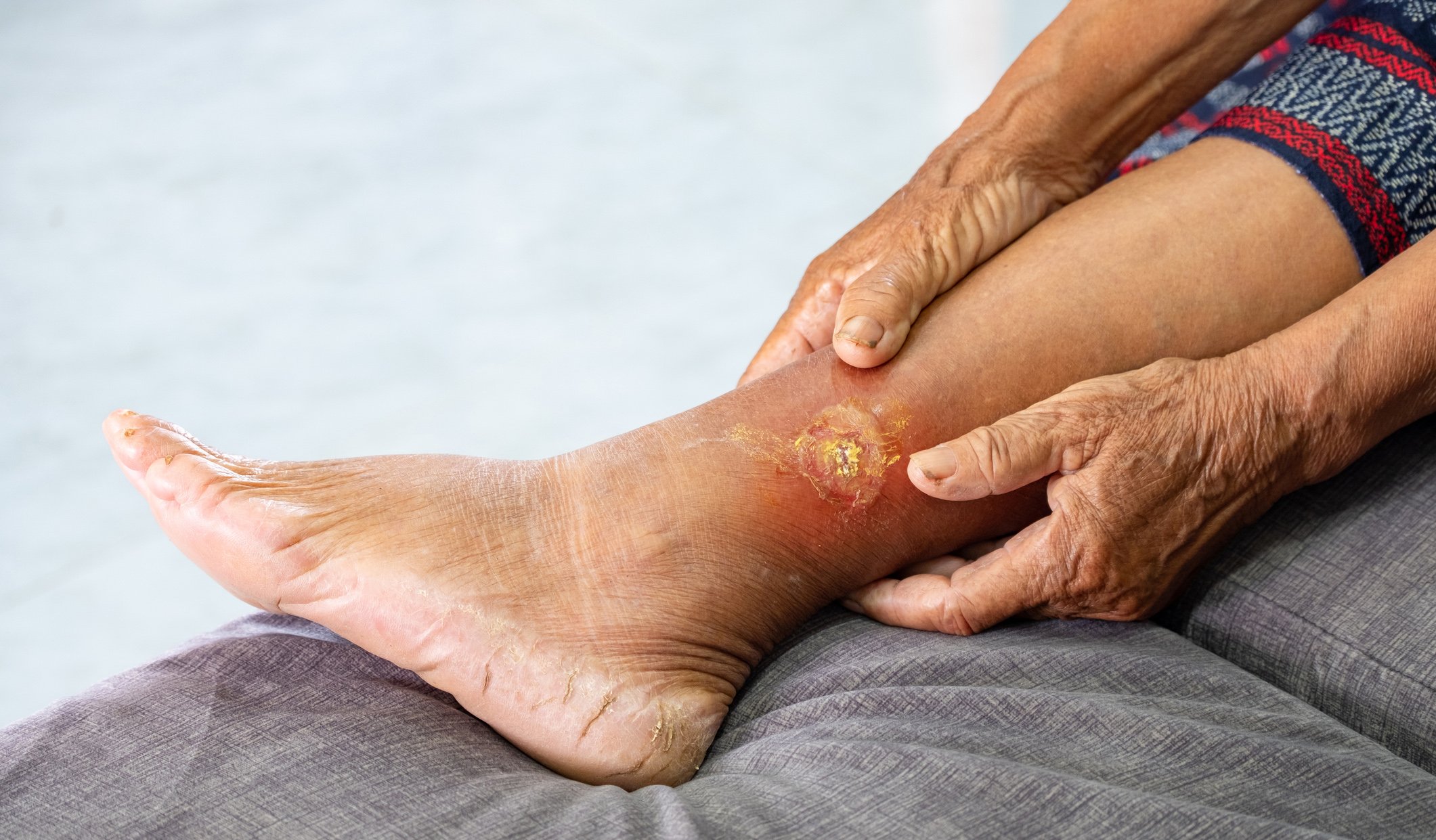At the first ESMO congress in Asia (Singapore), the results of various large studies were discussed and classified in terms of their international significance. The aim of the conference was to bring together Eastern and Western experts in order to generate new impulses for medical technology.research. Among other topics, a large Chinese study on first-line therapy for advanced gastric cancer was presented, and more detail was given on the incidence and control of head and neck tumors, which are endemic in Asia. In addition, they discussed the results of a head-to-head comparative study in NSCLC.
Phase III results with high practical relevance come from the RADIANT 4 trial. For the first time, a targeted agent, everolimus, shows good antitumor activity with an acceptable safety profile in a wide range of neuroendocrine tumors (NET). One administered 10 mg/d everolimus to 205 of 302 patients with advanced, progressive, well-differentiated, nonfunctional NET of the lung or gastrointestinal tract and placebo to the remaining 97. Everolimus is an inhibitor of the kinase mTOR, which has a key role in the PI3K/AKT pathway. In many malignant tumors, the PI3K/AKT signaling pathway is disrupted.
The median age of participants was 63 years, and 53% were women. About half of all NET were localized in the lung, rectum, stomach, or colon. The primary endpoint was progression-free survival. Other endpoints included overall survival. Ninety-seven centers worldwide participated in the study. The study arms were well balanced with respect to prior therapies, e.g., somatostatin analogues.
Significant benefit in PFS
The risk of progression was reduced by more than half with everolimus (HR 0.48; 95% CI 0.35-0.67; p<0.00001): Patients survived a median of just over seven months longer progression-free (11 months on everolimus, 3.9 months on placebo). The first interim analysis on overall survival also yielded promising results, although the threshold for statistical significance was missed. The risk of mortality was reduced by approximately one-third with the mTOR inhibitor (HR 0.64).
Drug-associated grade 3 or 4 adverse events were stomatitis (9% everolimus vs. 0% placebo), infection (7% vs. 0%), diarrhea (7% vs. 2%), anemia (4% vs. 1%), fatigue (3% vs. 1%), and hyperglycemia (3% vs. 0%). Overall, the safety profile was consistent with what is already known from previous studies – there were no fundamental surprises and the majority of adverse events were grade 1 and 2. The mortality rate with therapy was 3.5% vs. 3.1%.
The results of the RADIANT 4 study were very well received at the congress. In particular, it was noted that everolimus conferred a benefit in progression-free survival irrespective of the primary tumor site, so that, for example, the 30% patients with NET of the lung also benefited – a group in which treatment options have been very limited to date. Therapeutic options are also limited for NET of the small intestine after failure of somatostatin analogues. Here, everolimus has potential; after all, 24% of the NET studied were localized in the ileum.
The therapeutic toolbox in non-functional NET is thus complemented by a valuable option that shows good results in the gastrointestinal and pulmonary areas in advanced disease. It remains to be seen when the indication will be expanded accordingly. Currently, everolimus is indicated for patients with advanced, progressive, well or moderately differentiated NET of pancreatic origin. The study was published in the Lancet [1].
First-line therapy for gastric cancer – how to reduce toxicity?
A potential first-line therapy for advanced gastric cancer is the combination of cisplatin and capecitabine. Can toxicity be reduced and quality of life improved by replacing cisplatin with paclitaxel and adding capecitabine maintenance therapy? This question was addressed in a phase III study presented at the congress. From a total of 22 Chinese centers, we included 320 patients with advanced gastric cancer (histologically confirmed unresectable or metastatic adenocarcinoma of the stomach or gastroesophageal junction). The primary endpoint was progression-free survival. Secondary endpoints included overall survival, objective response rate, rate of controlled disease, quality of life, and safety.
In terms of survival, the combination studied did not confer a benefit compared with standard therapy. Neither progression-free survival (5.1 vs. 5.3 months; p=0.4) nor overall survival (12.6 vs. 11.9 months; p=0.21) differed significantly. Disease control rates were also the same (81.6% vs. 80.0%; p=0.75). In contrast, clear differences were found in response rates and tolerability: paclitaxel and capecitabine followed by capecitabine were responded to by 45.5% and the comparator treatment by only 31.7% of the treated patients (p=0.0115). Quality of life was significantly improved compared with three cycles of the cisplatin-capecitabine regimen. Treatment-associated adverse events such as leukopenia, thrombocytopenia, nausea, vomiting, and decreased food intake were observed significantly less frequently.
According to the authors, the study provides an important indication that the combination of paclitaxel and capecitabine as first-line chemotherapy (followed by capecitabine maintenance therapy) in advanced gastric cancer is equally effective as one of the standard variants, but is associated with a slightly improved safety and tolerability profile.
Head and neck tumors: what’s new?
Two other studies attracted attention at the congress as they presented new therapeutic strategies and approaches for optimal patient selection in difficult-to-treat head and neck tumors: KEYNOTE-028 (phase I) demonstrated the anti-tumor activity of pembrolizumab in a small sample of 27 patients with PD-L1-positive nasopharyngeal carcinoma, and LUX-H&N1 (phase III) highlighted which subgroups of patients with squamous cell carcinoma of the head and neck particularly benefit from afatinib in the second-line setting.
KEYNOTE-028: Pembrolizumab is a humanized monoclonal antibody that blocks the interaction between the immune checkpoint receptor PD-1 and its ligand PD-L1/-L2. These ligands are overexpressed in certain tumors and, via the PD1 signaling pathway, cause T cell activity and proliferation to be restricted or the body’s own antitumor immune response to be attenuated. Pembrolizumab is currently being investigated in multiple indications. Now, a phase Ib trial has shown that of 27 patients with PD-L1-positive nasopharyngeal carcinoma, seven achieved a partial response and 14 achieved stable disease with pembrolizumab. Initial evidence of clinical activity in this collective and important glimmer of hope for a heavily pretreated population with advanced tumors (all patients had unresectable and/or metastatic carcinomas, and approximately one-third had more than five prior therapies). The objective response rate was 22.2%. The median duration of response was 10.8 months. Five participants continue to take the drug. The authors rated the overall side effect profile as tolerable: drug-associated side effects were seen in 74.1%. The most common were pruritus (25.9%), fatigue (18.5%), hypothyroidism (18.5%), and rashes, pneumonitis, and hepatitis (11% each). Just under one-third suffered grade 3 or higher adverse events.
LUX-H&N1: Afatinib blocks ErbB receptor signaling (the ErbB family includes EGFR as well as HER2, 3 and 4), resulting in tumor growth inhibition or tumor regression. Overexpression of EGFR occurs in approximately 90% of head and neck squamous cell carcinomas and is associated with poor prognosis. In the phase III LUX-H&N1 trial published last year in Lancet Oncology, afatinib in the second-line setting showed a significant 20% risk reduction for progression compared with methotrexate in a population with few treatment options and a very poor prognosis [2]. Participants included 483 patients with recurrent or metastatic squamous cell carcinoma of the head and neck with progression under or after platinum-based therapy.
Subgroup analysis has now been presented at ESMO Asia. Apparently, patients with negative HPV status, EGFR amplification, deep HER3, high PTEN and without prior anti-EGFR therapy particularly benefit from the tyrosine kinase inhibitor. Are these possible biomarkers or selection criteria for predicting good outcome with the agent? Three additional Phase III studies on the subject are currently underway.
The results of the two studies are also important precisely because the incidence of certain head and neck tumors is increasing. While nasopharyngeal carcinoma remains mainly endemic in Asia (associated with Epstein-Barr virus) and is a much more relevant health problem there than in Europe and the United States, it was emphasized at the congress that oropharyngeal carcinomas are currently showing a worrying increase in some Western industrialized nations, which is related to the HPV epidemic. Globally, prevention programs, e.g. regarding tobacco abstinence, are crucial for reducing the incidence of head and neck cancer, the experts agreed.
NSCLC – head-to-head study with clear winner
While approval is still pending for afatinib in head and neck cancer, the compound is already being used in non-small cell lung cancer (NSCLC). Specifically, afatinib is indicated as monotherapy in stage IIIb/IV patients with activating mutations of EGFR (exon 19 deletions or exon 21 L858R substitutions) who have not been pretreated with EGFR tyrosine kinase inhibitors. At ESMO Asia, there was news on this population as well. An international phase IIb trial called LUX-Lung 7 compared the efficacy and safety of two EGFR-targeted therapeutics, afatinib and gefitinib, in the first-line setting. The 319 treatment-naive patients were randomized to receive either 40 mg/d afatinib or 250 mg/d gefitinib. Except for small differences in gender distribution (there were slightly more women in the gefitinib arm), the two groups were well balanced in terms of their baseline characteristics.
Afatinib was significantly superior to gefitinib in two co-primary endpoints:
- Progression-free survival: Afatinib reduced the risk of progression by 27% compared with gefitinib (HR 0.73; 95% CI 0.57-0.95; p=0.0165). At 18 months, 27 vs. 15% of patients were living progression-free (p=0.0176), and at 24 months, 18 vs. 8% (p=0.0184).
- Time to treatment failure: afatinib reduced the risk of treatment failure by 27% compared with gefitinib (HR 0.73; 95% CI 0.58-0.92; p=0.0073). Median time to treatment failure was 13.7 vs. 11.5 months.
Final data regarding overall survival (third primary endpoint) were not available at the time of the congress. Several secondary endpoints were presented for this: for example, objective response was 70% with afatinib and only 56% with gefitinib (p=0.0083). Median response lasted 10.1 vs. 8.4 months. The benefit of afatinib was also found in different subgroups, including by mutation type (Del19, L858R), ethnicity (Asian, non-Asian), age (<65, ≥65 years), and sex.
In both arms, an equal number of patients, 6.3% each, discontinued therapy due to adverse events. For afatinib, diarrhea, fatigue, and skin reactions were among the most common reasons for discontinuation; for gefitinib, elevations in alanine/aspartate aminotransferase (ALAT/AST) and interstitial pneumonia (these did not occur with afatinib). While the overall rate of serious adverse events was comparable in both arms, treatment-associated toxicities were more common with afatinib (10.6% vs. 4.4%) – the same was true for consecutive dose reductions (41.9 vs. 1.9%). Grade 3 adverse events in the gefitinib group included ALAT elevations (7.5%), rash/acne (3.1%), AST elevations (2.5%), and diarrhea (1.3%) – in the afatinib group, diarrhea (11.9%), rash/acne (9.4%), fatigue (5.6%), stomatitis (4.4%), paronychia (1.9%), and nausea (1.3%). Overall, toxicities were within the range of expectations and were controllable.
Positive conclusion
Irreversible ErbB blockade with afatinib, a second-generation tyrosine kinase inhibitor, is superior to reversible EGFR inhibition with the first-generation drug gefitinib, LUX-Lung-7 concluded. The difference in progression-free survival increased as therapy progressed, suggesting an increased long-term benefit with afatinib. After two years, the rate was more than double that of gefitinib.
Since the increased efficacy did not come at the cost of reduced tolerance (the rate of treatment discontinuation was low in both arms) and the benefits were independent of mutation type, the data may influence the choice of first-line therapeutic agent in this indication in the future.
Source: ESMO Asia, December 18-21, 2015, Singapore
Literature:
- Yao JC, et al: Everolimus for the treatment of advanced, non-functional neuroendocrine tumours of the lung or gastrointestinal tract (RADIANT-4): a randomised, placebo-controlled, phase 3 study. Lancet 2015 Dec 15 [Epub ahead of print]. DOI: 10.1016/S0140-6736(15)00817-X.
- Machiels JP, et al: Afatinib versus methotrexate as second-line treatment in patients with recurrent or metastatic squamous-cell carcinoma of the head and neck progressing on or after platinum-based therapy (LUX-Head & Neck 1): an open-label, randomised phase 3 trial. Lancet Oncol 2015 May; 16(5): 583-594.
InFo ONCOLOGY & HEMATOLOGY 2016; 4(1): 38-41.











